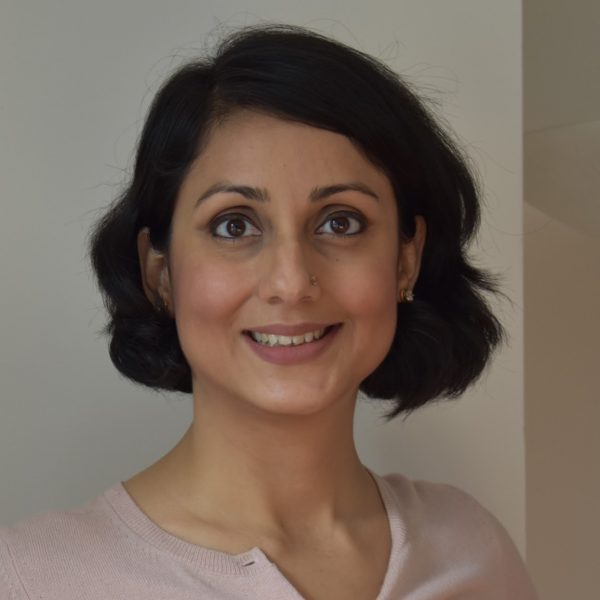About CHASS
The CHASS Initiative was launched within the Faculty of Computing and Data Sciences (CDS) in 2021 by Wesley Wildman (STH/CDS) and Neha Gondal (CAS-Sociology/CDS). It began with research to identify BU faculty interested in CHASS research and teaching. This included speaking with numerous department chairs and deans. Then there was a survey, co-sponsored by university leaders in the Co-Sponsor List below, aiming to assess what mattered to these faculty and to find other interested professors. The survey enjoyed a high response rate and clearly indicated strong interest in networking and communication, primarily to strengthen CHASS research efforts and secondarily to support CHASS teaching. Next came budget support from CDS, and then the launch of programming initiatives and a website.
The point of the CHASS Initiative is to respond to those survey findings. We aim to:
- Catalyze research networks (many faculty want to do CHASS research but in most cases teamwork is essential to unlock new avenues of investigation and funding)
- Enhance communication about CHASS activities (courses, research projects, events)
- Share information about CHASS tools and their application in the humanities, arts, and social sciences, including public health
BU Faculty of Computing & Data Sciences
The Faculty of Computing and Data Sciences serves and supports every university unit. The CHASS initiative helps CDS fulfill its mission in relation to the humanities, arts, and social sciences (including public health). The computing and data-science toolkit is powerful and adaptable, packed with dozens of relevant techniques, and constantly expanding. We are only just beginning to understand the ways that this ever-expanding toolkit can advance the native goals of the humanities, arts, and social-science disciplines.
It is abundantly clear that the humanities, arts, and social sciences don’t need CHASS to do good and vital work, just as it is patently obvious that CHASS can never replace the hermeneutical and aesthetic sophistication of researchers in the humanities, arts, and social sciences. Nevertheless, CHASS is possible and useful, adding value, building appreciative cross-disciplinary university partnerships, generating novel insights and lines of research funding, and showcasing the intrinsic value of the various application domains.
This expresses the invitational, mutually respectful, and collaborative mode of interdisciplinary engagement that the CHASS Initiative (and CDS itself) seeks to cultivate at Boston University.
CHASS Co-Sponsors
From the beginning, the CHASS Initiative has been fortunate to enjoy the support and co-sponsorship of key university leaders, who backed both the initial faculty survey and the early programming efforts of the CHASS Initiative.
- Faculty of Computing and Data Sciences Associate Provost Azer Bestavros
- College of Arts and Sciences Dean Stan Sclaroff
- College of Fine Arts Dean Harvey Young
- CAS Center for Humanities Director Susan Mizruchi
- CAS Center for Innovation in Social Science Director Deborah Carr
- Hariri Institute Director Ioannis Paschalides
Leadership
Wesley J. Wildman is a philosopher specializing in complex adaptive human social systems, including religious and nonreligious worldviews and lifeways. With an educational and professional background in computing and data sciences, he applies CHASS methods to advance lines of inquiry in the humanities, social sciences, and public health, from the dynamics of civilizational change to religious-extremist violence. Author or editor of two dozen books, he is Professor of Philosophy, Theology, and Ethics in the School of Theology and a founding member of the Faculty of Computing and Data Sciences.
 Neha Gondal is a social scientist specializing in the computational and statistical analysis of social networks, aiming to understand and mitigate equity problems that arise within human groups. She has studied diverse contexts such as elite consolidation through money-lending ties in Renaissance Florence, inequalities in academic communities evident in citation and hiring networks, and the clustering of unhealthy outcomes in Boston’s public housing developments. She is Assistant Professor in the CAS-Sociology Department and a founding member of the Faculty of Computing and Data Sciences.
Neha Gondal is a social scientist specializing in the computational and statistical analysis of social networks, aiming to understand and mitigate equity problems that arise within human groups. She has studied diverse contexts such as elite consolidation through money-lending ties in Renaissance Florence, inequalities in academic communities evident in citation and hiring networks, and the clustering of unhealthy outcomes in Boston’s public housing developments. She is Assistant Professor in the CAS-Sociology Department and a founding member of the Faculty of Computing and Data Sciences.

